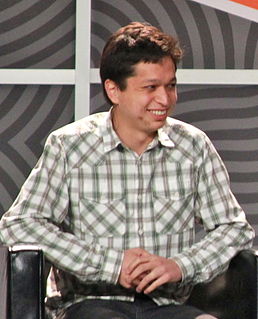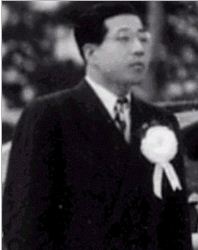A Quote by Sara Zarr
It came down to the smallest things, really, that a person could do to say I’m sorry, to say it’s okay, to say I forgive you. The tiniest of declarations that built, one on top of the other, until there was something solid beneath your feet. And then… and then. Who knew?
Related Quotes
Back then, as a teenager, I kept thinking, why don't the adults around here just say something? Say it so they know we don't accept segregation? I knew then and I know now that, when it comes to justice, there's no easy way to get it. You can't sugarcoat it. You have to take a stand and say, 'This is not right.'
Back then, as a teenager, I kept thinking, Why don't the adult around here just say something? Say it so they know we don't accept segregation? I knew then and I know now that, when it comes to justice, there is no easy way to get it. You can't sugarcoat it. You have to take a stand and say, 'This is not right.' And I did.
Forgiveness depends on the person. If he's saying sorry to make himself comfortable, then don't forgive him. If he's asking for forgiveness sincerely, then it's okay to forgive him. If you don't know what's on that person's mind... It's easy. Watch carefully how that person has lived up to now, and how he's living right now.
When I started out as an actor, I thought, Here's what I have to say; how shall I say it? I began to understand that what I do in the scene is not as important as what happens between me and the other person. And listening is what lets it happen. It's almost always the other person who causes you to say what you say next. You don't have to figure out how you'll say it. You have to listen so simply, so innocently, that the other person brings about a change in you that makes you say it and informs the way you say it.
Then God came to the woman and said to her, "Why did you not keep the commandment?" as if He wanted to say, "At least you, say forgive me, so as to humble your soul and to receive mercy." Again, there was no request for forgiveness. She also answered, "The serpent deceived me," as if she wanted to say, "If the serpent sinned, where is my mistake?"
If someone's performance is down we do not say, 'Hey pick up your things here.' We do not yell and scream at them, we say, 'Are you okay?' The idea of putting our financials goal aside for one minute to express empathy for the human being for that work and saying, 'Are you okay?' That is part of the sacrifice.
What do you want in your life? What do you want in your relationships? And if you say, I'd like them to be harmonious; I'd like them to be free; I'd like not to be in a state of blame all the time or shame. If you answer like that, then I would say, look at what's unforgiven. Look at where you know you did wrong and you would like to go to that person and say - I'm sorry. Can we start over? If you want to have a happier life, I would say, practice forgiveness.
Everybody was going along thinking that it was a day like any other day, and bang, down went the Twin Towers. Changed everything. So you can't really predict the future, but you can say, "Boy, are those glaciers ever melting." You can measure that, and you can say, "When they're all melted there won't be any Athabasca River," and you can say, "What will happen to the oil sands then?" because you need a lot of water to make that oil. "Where's that going to come from?" You can say things like that.
The Tea Party people say they're angry about socialism, but maybe they're really angry about capitalism. If there's a sense of being looked down upon, it's that sense of failure that's built into a system that assures everyone they can make it to the top, but then reserves the top for only a tiny fraction of the strivers.





































